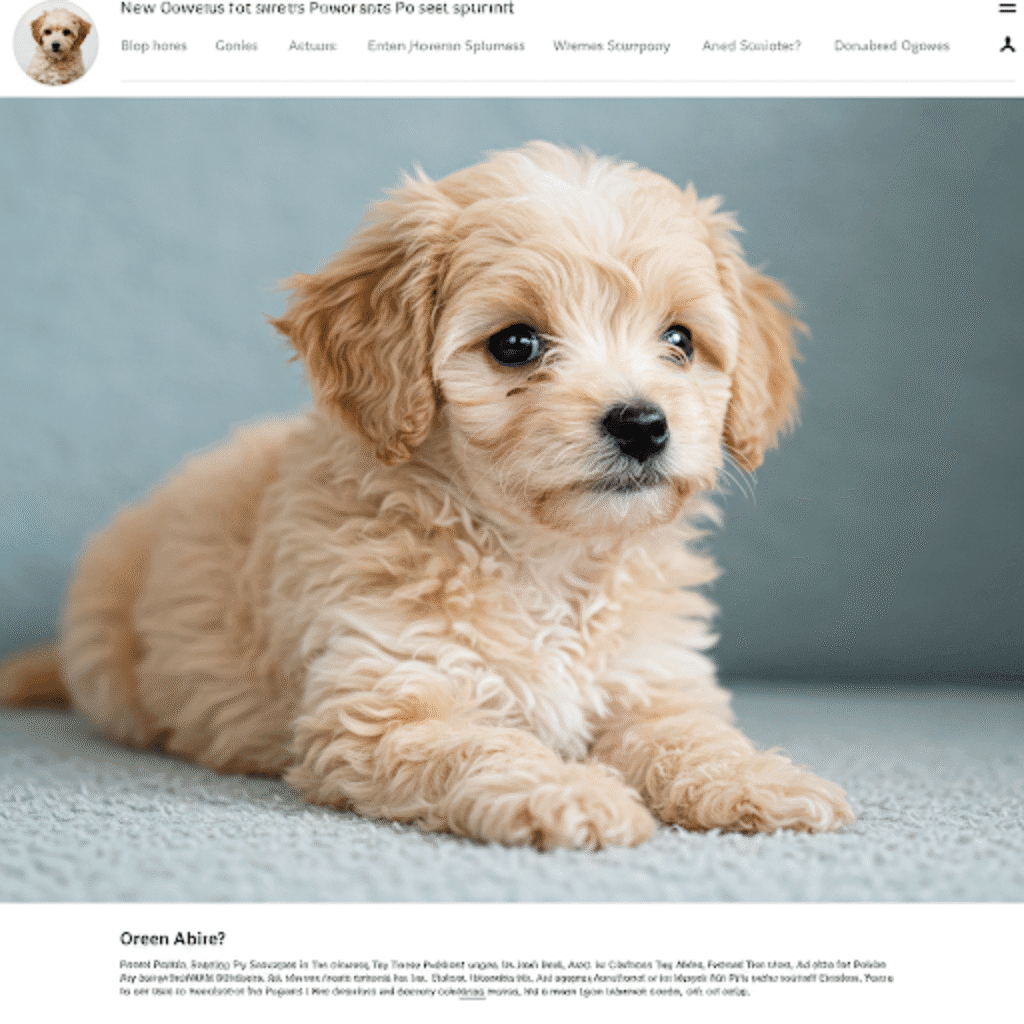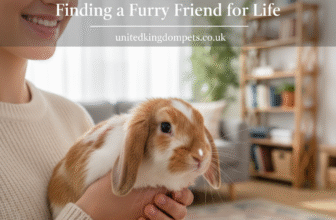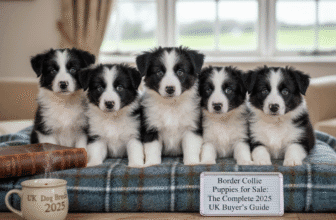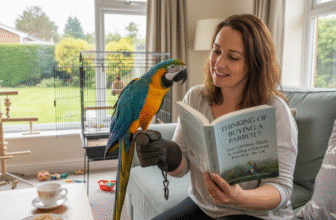
Thinking of Welcoming a Toy Poodle into Your UK Home? A Comprehensive Guide
The Toy Poodle, with its elegant stance, intelligent eyes, and famously hypoallergenic curls, is undeniably one of the most captivating small dog breeds. Their diminutive size packs a surprisingly large personality, making them popular companions across the United Kingdom, from bustling city flats to quiet countryside cottages. If you’ve found yourself charmed by these little dynamos and are contemplating bringing one home, you’ve come to the right place. The phrase “Toy Poodle for sale” might be what brought you here, but finding the right canine companion is about so much more than a simple transaction. It’s about understanding the breed, committing to their needs, and, crucially, sourcing your new friend responsibly.
This guide aims to navigate you through the delightful world of Toy Poodles, offering insights into their nature, care requirements, health considerations, and the ethical pathways to finding one in the UK. Adding a dog to your life is a significant commitment, typically spanning well over a decade, so making an informed decision is paramount for both your happiness and the dog’s wellbeing.
What Exactly IS a Toy Poodle? More Than Just a Pretty Face

Often associated with Parisian chic or elaborate show cuts, the Poodle breed has a rich and rather more rugged history than many realise. Originating in Germany (not France, despite their national acclaim there!) as water retrieving dogs – ‘Pudel’ derives from the German word ‘pudeln,’ meaning ‘to splash in water’ – their distinctive coat clips were initially practical, designed to protect vital organs and joints from cold water while allowing free movement.
The Poodle comes in three main sizes recognised by The Kennel Club in the UK: Standard, Miniature, and Toy. The Toy Poodle is the smallest of the trio.
- Size and Appearance: A Toy Poodle stands proudly at 11 inches (28 cm) or less at the highest point of the shoulders. They are finely built but sturdy, exuding an air of elegance and alertness. Their defining feature is their coat – a dense, curly, or corded texture that is virtually non-shedding. This makes them a popular choice for some allergy sufferers, though it’s important to remember no dog is truly 100% hypoallergenic, as allergens can also be present in saliva and dander. They come in a wonderful array of solid colours, including black, white, cream, apricot, red, silver, and blue.
- Temperament: Beneath the stylish exterior lies a highly intelligent and trainable mind. Toy Poodles are eager to please, learn quickly, and often excel in canine sports like agility and obedience. They are typically affectionate, forming strong bonds with their families, and possess a playful, sometimes mischievous, spirit. They thrive on human companionship and don’t enjoy being left alone for long periods, potentially developing separation anxiety if not properly managed. While generally good-natured, their small size can sometimes make them a bit sensitive or prone to nervousness if not well-socialised from a young age. They can also be quite vocal, making early training important to manage barking.
- Suitability: Their small size makes them adaptable to various living situations, including apartments, provided their exercise and mental stimulation needs are met. They can be wonderful companions for singles, couples, active seniors, and families with older, considerate children (due to their delicate build, interactions with very young children should always be supervised). Their intelligence means they need engagement – don’t mistake their size for low maintenance in the mental department!
Finding Your Toy Poodle: The Responsible Path is the Only Path
This is perhaps the most critical part of your journey. How you acquire your Toy Poodle has profound implications for the dog’s health and temperament, and it directly impacts canine welfare standards. The allure of a quickly available puppy online or in a shop can be strong, but resisting this temptation in favour of responsible sources is vital.
Reputable Breeders: The Gold Standard
A truly reputable breeder prioritises the health, temperament, and betterment of the breed above profit. Finding one requires patience and diligence.
How to Identify a Good Breeder:
- Kennel Club Assured Breeders: While not a guarantee, looking for breeders registered with The Kennel Club’s Assured Breeder Scheme (ABS) is a good starting point. These breeders agree to follow certain standards, including health testing.
- Breed Club Membership: Responsible breeders are often active members of Poodle breed clubs. These clubs usually have codes of ethics and can be a resource for finding breeders.
- Health Testing Focus: They will openly discuss and provide proof of relevant health tests carried out on the parent dogs. For Toy Poodles, this should include tests for conditions like Progressive Retinal Atrophy (PRA-prcd) and potentially screening for Luxating Patella.
- Knowledge and Passion: They will be knowledgeable about the breed, its history, health, and temperament, and happy to answer all your questions thoroughly.
- They Interview YOU: A good breeder cares deeply about where their puppies go. Expect them to ask you lots of questions about your lifestyle, experience with dogs, home environment, and plans for the puppy.
- See Mum and Pups: You should always be able to see the puppies interacting with their mother in the environment where they were raised (usually the breeder’s home). The father may not always be present if he was a stud dog from elsewhere, but information and health tests should be available.
- Clean and Caring Environment: Puppies should be raised in a clean, safe, and stimulating home environment, not a barren kennel or cage.
- Contracts and Support: They will likely provide a contract of sale outlining responsibilities and guarantees, offer lifetime support, and insist that the dog be returned to them if you can ever no longer keep it.
- Patience Required: Good breeders often have waiting lists. Be prepared to wait for the right puppy from the right source.
Red Flags to Watch Out For:
- Selling puppies younger than 8 weeks old (illegal in the UK).
- No evidence or willingness to discuss health testing of parents.
- Breeding multiple different popular or ‘designer’ breeds.
- Offering to meet you somewhere convenient (like a car park or service station) rather than letting you visit their home/premises.
- High-pressure sales tactics or seeming desperate to sell quickly.
- Lack of knowledge about the breed or vague answers to questions.
- Keeping dogs in poor, dirty, or overcrowded conditions.
- Having puppies constantly available year-round.
Avoiding puppy farms (large-scale commercial breeding facilities often with poor welfare standards) and irresponsible ‘backyard breeders’ (who breed without proper knowledge, health testing, or care) is crucial. Buying from these sources fuels the trade and often results in unhealthy, poorly socialised puppies with potential lifelong problems.
Rescue Organisations: Giving a Second Chance
Don’t overlook the possibility of adopting a Toy Poodle from a rescue organisation. While perhaps less common than finding puppies through breeders, Poodles of all sizes do end up in rescue for various reasons – owner illness, changes in circumstances, allergies, or sometimes because the initial owner underestimated their needs.
- Why Consider Rescue? You provide a loving home to a dog in need. Rescue dogs are often already house-trained and past the demanding puppy stage (though some puppies do end up in rescue).
- Finding Rescues: Look for Poodle-specific rescues in the UK (like Poodle Network UK or The Poodle Alliance) or general small dog rescues and larger charities like the RSPCA, Dogs Trust, or Blue Cross. They often have websites listing available dogs.
- The Adoption Process: Reputable rescues have thorough adoption processes. This typically involves an application form, interviews, and often a home check to ensure a good match between the dog and the potential adopter. They will be honest about the dog’s history (as far as known) and any known behavioural or health issues. There will be an adoption fee, which helps cover the rescue’s costs (vet care, food, kennelling).
Online Marketplaces and Pet Shops: Proceed with Extreme Caution
While tempting due to convenience, buying puppies advertised on general online marketplaces or from pet shops carries significant risks. These are common outlets for puppy farmers and irresponsible breeders. It’s often impossible to verify the breeding conditions, the health of the parents, or the early socialisation the puppy received. Lucy’s Law, implemented in England in 2020, made it illegal to sell puppies and kittens under six months old unless they are the breeder or a legitimate rescue centre. This aims to curb puppy farming, but vigilance is still required across the UK. Prioritise breeders you can visit or registered rescue centres.
Understanding Toy Poodle Health: Small Dog, Specific Needs
Toy Poodles are generally healthy dogs with a good lifespan, often living 14-18 years or even longer with proper care. However, like all breeds, they are prone to certain genetic health conditions.
Common Health Concerns:
- Progressive Retinal Atrophy (PRA): A group of genetic diseases affecting the retina, leading to blindness. A specific form, prcd-PRA, is common in Poodles. DNA testing of breeding dogs is crucial to prevent producing affected puppies.
- Luxating Patella: The kneecap dislocates or slips out of place. Common in small breeds. Can range from mild to severe, sometimes requiring surgery. Breeders may screen for this.
- Legg-Calve-Perthes Disease: A condition affecting the hip joint, where the head of the femur degenerates, causing pain and lameness. Usually requires surgery.
- Dental Issues: Small mouths can mean crowded teeth, making them prone to tartar buildup, gum disease, and tooth loss. Regular dental care (brushing, dental chews, vet checks) is vital.
- Addison’s Disease: An endocrine disorder where the adrenal glands don’t produce enough hormones. Can be serious but manageable with medication.
- Sebaceous Adenitis (SA): An inflammatory skin disease affecting the sebaceous glands. Can cause hair loss and skin infections.
- Other potential issues: Epilepsy, Von Willebrand’s Disease (a bleeding disorder), and thyroid problems can also occur.
This list isn’t meant to scare you, but to highlight the importance of choosing a breeder who actively health tests their breeding stock for relevant conditions. Responsible breeding significantly reduces the risk of puppies inheriting these problems. Pet insurance is also highly recommended to help manage unexpected veterinary costs.
Caring for Your Toy Poodle: Beyond the Basics
Owning a Toy Poodle is a joy, but they have specific care needs to keep them happy and healthy.
- Grooming: This is non-negotiable! Their beautiful, non-shedding coat grows continuously and mats easily if neglected.
- Brushing: Daily or at least several times a week, right down to the skin, is essential to prevent matting.
- Clipping: They require professional grooming every 4-8 weeks for a full clip, depending on the desired style and coat growth. This is a significant ongoing expense to factor in. Alternatively, you can learn to clip them yourself, but it requires proper equipment and skill.
- Other: Regular ear cleaning (Poodles can be prone to ear infections) and nail trimming are also necessary.
- Exercise: While small, they are energetic. Daily walks are essential, along with opportunities for off-leash running in a safe area (once recall is reliable!) and playtime. Don’t underestimate their need for activity.
- Training and Mental Stimulation: Their high intelligence means they need their brains exercised too! Early socialisation with various sights, sounds, people, and other dogs is crucial to develop a confident, well-adjusted adult. Positive reinforcement training methods work best. They love learning tricks, participating in puzzle toys, and activities like mini-agility or obedience. A bored Poodle can become destructive or bark excessively.
- Diet: Provide a high-quality dog food formulated for small breeds. Pay attention to portion sizes to prevent obesity, which can exacerbate joint problems like luxating patella.
- Companionship: As mentioned, they thrive on being with their people. They are not dogs to be left alone in the garden all day. Ensure they have plenty of interaction and aren’t left isolated for extended periods regularly.
The Financial Commitment: What Does Owning a Toy Poodle Cost in the UK?
Bringing a Toy Poodle home involves more than just the initial purchase price.
- Initial Cost:
- From a reputable breeder: Expect to pay anywhere from £1,500 to £3,000 or even more for a well-bred, health-tested puppy from champion lines (prices as of early 2025, subject to change). Be wary of unusually low prices, as this can be a red flag for poor breeding practices.
- Adoption fee from rescue: Typically £200 – £500, covering vet checks, neutering, microchipping, etc.
- Setup Costs: Bed, crate (optional, for training), food and water bowls, collar/harness, lead, toys, grooming tools (brushes, comb), initial vet check, puppy vaccinations, microchipping (legally required) – estimate £200-£500.
- Ongoing Annual Costs:
- Food: £300 – £600+ depending on brand quality.
- Grooming: £40 – £70+ per session, every 4-8 weeks (£300 – £1000+ annually).
- Vet Care: Annual check-ups, boosters, flea/worm/tick prevention (£200 – £400+).
- Pet Insurance: Highly recommended (£250 – £600+ annually, varies significantly by provider, dog’s age, and location).
- Extras: Training classes, toys, treats, potential dog walkers or pet sitters (£ varies greatly).
Owning a Toy Poodle is a significant financial commitment over the dog’s lifetime.
Is a Toy Poodle Truly the Right Companion for You?
Before you commit, honestly assess if this breed fits your lifestyle:
- Do you have time for grooming? The coat requires significant, regular attention – either your time or your money for a professional groomer.
- Can you provide enough companionship and mental stimulation? They need interaction and training to prevent boredom and potential behavioural issues like barking or separation anxiety.
- Are you prepared for the training commitment? Their intelligence is a double-edged sword; they learn quickly, good habits and bad! Consistent, positive training is key.
- Is your home environment suitable? They adapt well to apartments but need daily walks and playtime. Consider potential noise sensitivity if you have close neighbours.
- Can you afford the ongoing costs? Factor in food, grooming, vet care, insurance, and other potential expenses.
Your Journey to Finding a Toy Poodle
Bringing a Toy Poodle into your life can be an incredibly rewarding experience. They offer intelligence, affection, and lively companionship in a conveniently small package. However, the journey begins long before the puppy arrives home. It starts with research, responsible decision-making, and a commitment to providing the best possible care.
Resist the urge for instant gratification. Whether you choose the path of a reputable breeder or open your heart to a rescue dog, prioritise ethical sourcing. By doing so, you not only increase your chances of welcoming a healthy, well-adjusted companion but also contribute positively to dog welfare in the UK. We wish you the very best in finding the perfect Toy Poodle to join your family.







